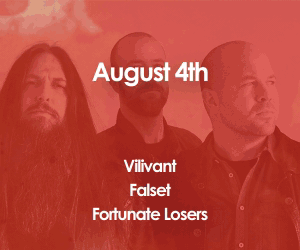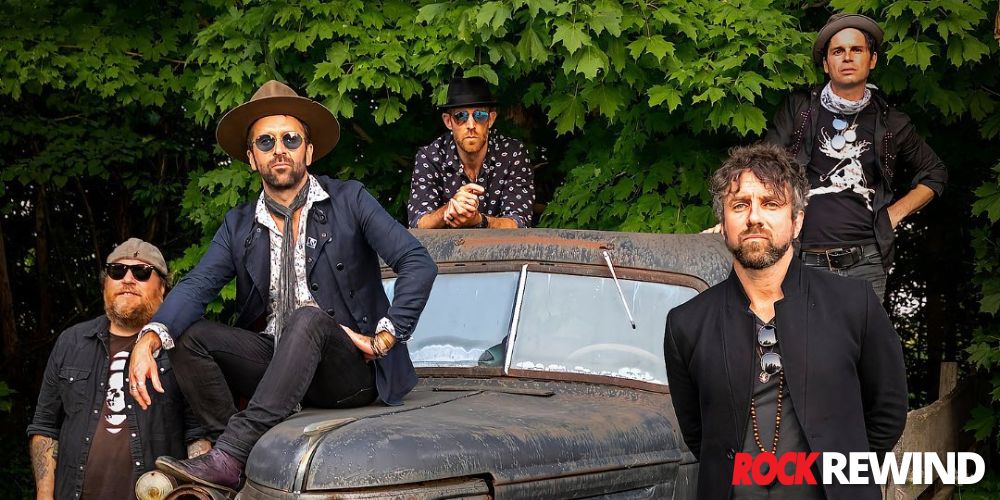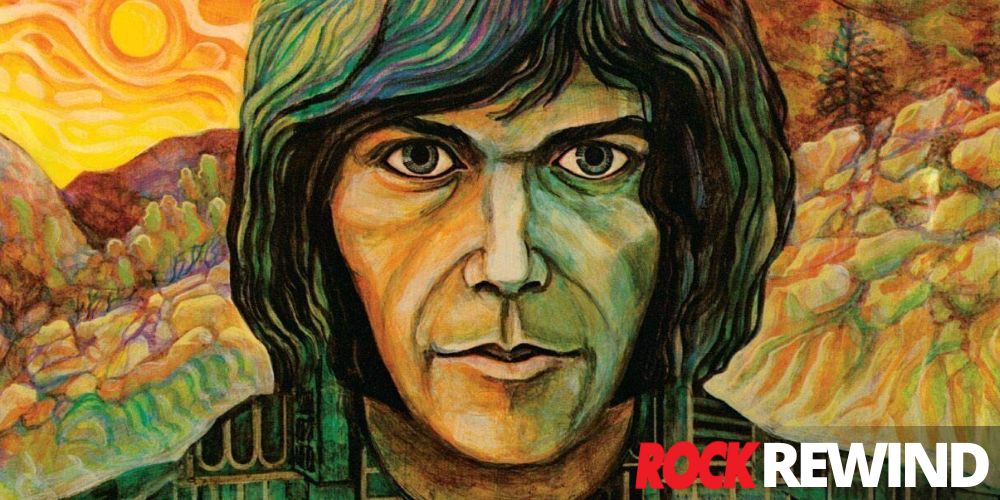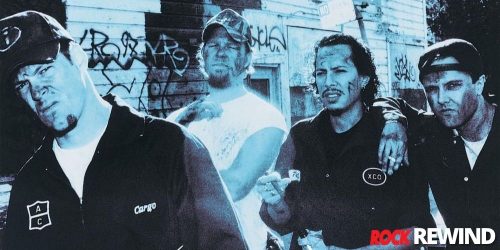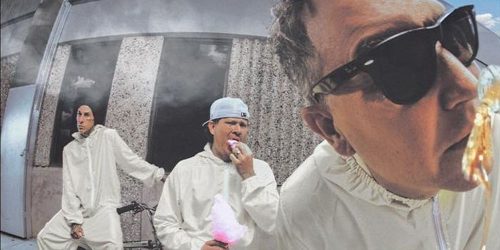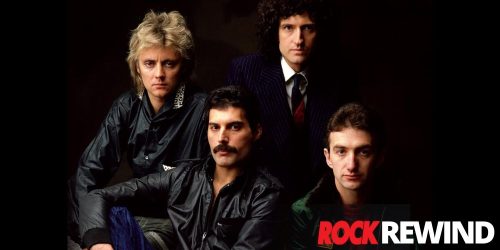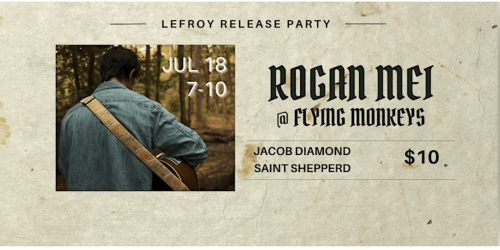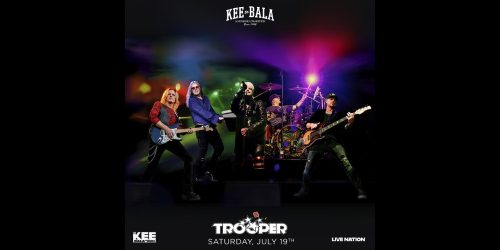Rock Rewind: Tom Cochrane's Inspiring Legacy of Hope
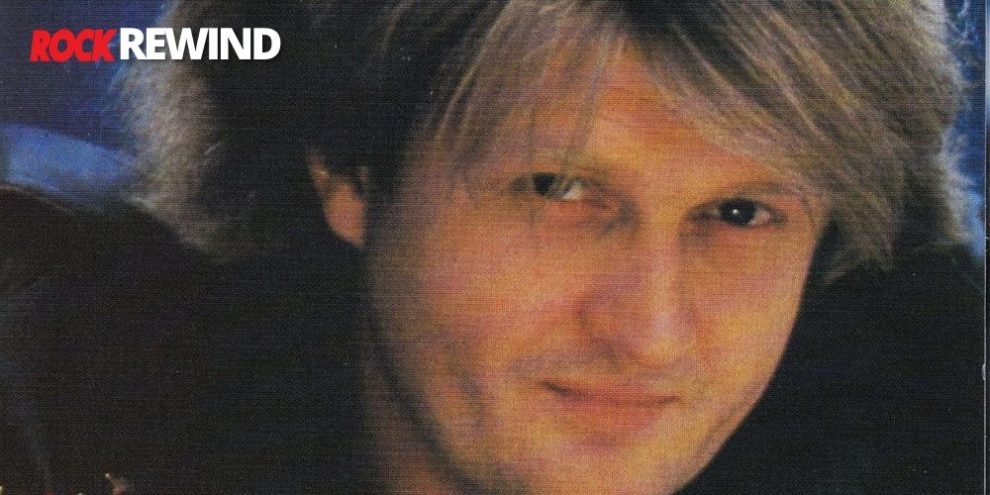
This Rock 95 content is brought to you by Kempenfest
Tom Cochrane is a Canadian singer-songwriter who has been a prominent figure in the Canadian music industry for over four decades.
Best known for his solo work and as the frontman of Red Rider, his music is more than just a collection of songs. It's a journey through the human experience.
From the energetic spirit of "Life is a Highway" to the heart-wrenching vulnerability of "Big League," Cochrane has left an indelible mark on the Canadian music scene and beyond.
Let’s take a better look at Cochrane’s story …
Tom Cochrane’s Early Years
Tom Cochrane was born May 14, 1953, in Lynn Lake, Manitoba. His father was a bush pilot who moved his family to Ontario soon after Cochrane was born.
When he was only 11 years old, Cochrane traded a toy train set for a guitar.
By his late teens, he had started playing folk music at Yorkville coffeehouses. The area was at the center of Toronto’s 1970s bohemian culture.
By 1973 he had recorded “You’re Driving Me Crazy,” his first single with Daffodil records. Soon after, he recorded Hang On To Your Resistance under the name Cochrane. Nothing much came of the album’s release so Cochrane spent the next few years traveling and paying his dues.
Joining Red Rider
While Cochrane was working hard to make a name for himself, 5 other Canadian musicians were busy starting their own band – Red Rider.
The band consisted of:
- Peter Boynton on keyboard and vocals
- Ken Greer on guitar and keyboard
- Rob Baker on drums
- Arvo Lepp on guitar
- Jon Checkowski on bass
The quintet formed in 1975, performing originals and covers around Toronto.
In 1978, Red Rider’s manager reached out to Capitol Records. He was interested in having Tom Cochrane come on as a singer, guitarist, and composer. Cochrane went to one of the group's gigs in London, Ontario to rehearse with them. Boynton, Greer, and Baker were impressed. The others were not and decided to leave Red Rider.
Jeff Jones, who had formerly played with Ocean and Rush, came on to replace Checkowski on bass. For the next few years, the Red Rider lineup was:
- Tom Cochrane on lead vocals and guitar
- Peter Boynton on keyboard
- Ken Greer on guitar and keyboard
- Rob Baker on drums
- Jeff Jones on bass
Releasing Their First Album
Capitol Records signed the group and in 1979, they released their first album, Don’t Fight In. The album quickly reached gold status with the single “White Hot” making it to #20 on the Canadian charts. The song was about poet Arthur Rimbaud’s travels in Africa.
The following year, the album would be released in the US where the single hit #48 on the Pop Singles chart.
In 1981, the band released their second album. As Far As Siam reached #65 on the Pop Album chart and included one of Red Rider’s most popular songs – “Lunatic Fringe.” Following the release of their second album, Steve Sexton replaced Boynton on keyboard.
In 1983, Red Rider released Neruda followed by Breaking Curfew in 1984. Neruda, titled after the poet Pablo Neruda, reached #66 on the Pop charts. Its best-performing single was “Human Race,” which charted #29 in Canada and #11 on the US Mainstream Rock chart.
Breaking Curfew didn’t chart as well as the band’s previous albums though its single “Young Thing, Wild Dreams (Rock Me)” made it to the Hot 100 at #71. Breaking Curfew was also the first album to feature John Webster on keyboards after Sexton left the band.
Following the album’s release, the Red Rider parted ways with their then-manager Bruce Allen. Jones and Baker also left the band.
RELATED: Neil Young never fails to surprise fans ...
Red Rider Becomes Tom Cochrane & Red Rider
Soon after, Red Rider changed their name to Tom Cochrane & Red Rider with Greer on guitar, Webster on keyboards, Ken “Spider” Sinnaeve on bass, and Cochrane on lead vocals and guitar. The first release after the rebrand was Tom Cochrane And Red Rider. The band was without a drummer at the time of recording so Graham Broad from Go West and Roger Water’s band helped out with the album. Following its release, Randall Coryell joined on drums, along with Peter Mueller on guitar.
Until their breakup, the Tom Cochrane & Red Rider lineup consisted of:
- Tom Cochrane on lead vocals and guitar
- John Webster on keyboard
- Ken Greer on guitar and keyboard
- Ken “Spider” Sinnaeve on bass
- Randall Coryall on drums
- Peter Mueller on guitar
In late 1988, the band released Victory Day. “Big League” was the album’s top song, reaching #4 in Canada and top 10 on US radio.
THE STORY BEHIND “BIG LEAGUE”
In an interview, Cochran shared, “It is one of my most poignant songs, and I often say to people it’s the song I’m most proud of … It’s a Canadian anthem. And it does resonate universally, but it’s still our story, you know? And that’s important to me.”
The song was inspired by a true story though Cochrane has never shared whose story it is. He explained, “I think what’s important is that it is inclusive for everybody … I don’t think it’s that important, specifically, who it’s about.”
He has, however, shared the brief interaction he had with the father the song is about.
Before one of the band’s concerts, a man told Cochrane that his son was a fan of “Boy Inside The Man.” When Cochrane asked if the son would be at the show, the man responded “No, he passed away, he was an aspiring hockey player.”
Cochrane remembers hearing that hit him “like a ton of bricks.”
The song came to Cochrane a few months later as a memorial to the young hockey player and the many parents who have lost their children. A solo version of the song was later released as a charity single to raise funds for the victims and survivors of the Humboldt Broncos crash.
Tom Cochrane Goes Solo
Tom Cochrane & Red Rider’s final album came out in 1989. For The Symphony Sessions, Tom Cochrane & Red Rider played with the Edmonton Symphony Orchestra. Soon after the album's release, the band parted ways.
With Red Rider no more, Tom Cochrane decided it was time to go solo again. He brought on Webster and Sinnaeve for his backing band, along with others.
His solo career was relaunched in 1991 with Mad Mad World and “Life Is A Highway,” which went #1 in Canada and #6 on the US Billboard Hot 100. Over the next 25 years, he released 4 more studio albums.
Back Together With Red Rider
In 2022, John Garrish, who had been a guitar tech for Red Rider in the 80s, was mugged and stabbed to death. Cochrane, Greer, and Jones got back together to play a benefit show in his memory. Since then, Tom Cochrane & Red Rider have continued to tour with other members joining from time to time.
Currently, the Tom Cochrane & Red Rider touring lineup is made up of:
- Tom Cochrane on lead vocals and guitar
- Ken Greer on guitar and keyboard
- David Direnzo on drums
- Jeff Jones on bass
- Bill Bell on guitar
Today, Cochrane lives in Oakville with his wife Kathleene. He spends his summers at his studio and cottage on Georgian Bay and continues to perform for his fans in Canada.
Tom Cochrane Discography
Since 1978, Tom Cochrane has put out:
7 albums with Red Rider – Don’t Fight It (1979), As Far As Siam (1981), Neruda (1983), Breaking Curfew (1984), Tom Cochrane And Red Rider (1986), Victoria Day (1988), and The Symphony Sessions (1989)
4 compilations with Red Rider – Over 60 Minutes With Red Rider (1987), Ashes To Diamonds (1993), Anthology 1980-1987 (2002), and Trapeze: The Collection (2002)
1 solo compilation album – Songs Of A Circling Spirit (1997)
1 soundtrack – My Pleasure Is My Business (1975)
He’s also released 6 solo studio albums …
1. Hang On To Your Resistance (1974)
In 1974, Cochrane released his first solo album under Daffodil Records. He issued the album under the name Cochrane. The single “You're Driving Me Crazy” reached #16 on the Canadian charts. A year later, Cochrane recorded the soundtrack to My Pleasure Is My Business, a Canadian-made low-budget sex farce.
During an interview with The Wire, Cochrane shared, “Ya that film, funny because Al Waxman directed it and it had a lot of Second City people in it. It’s more of a comedy. It was a lot of fun. It was a nifty little record … So ya, it’s a funny footnote. Every once and a while someone will pull out the original vinyl of it and I’ll sign it up. It’s a humourous aside to my career.”
In 1987, Capitol Record re-issued Cochrane’s debut album under his full name with the title Hang On To Your Resistance (The Early Years).
2. Mad Mad World (1991)
After Red Rider broke up, Cochrane returned to his solo career with Mad Mad World. The first single from the album was “Life Is A Highway.” The song reached #1 in Canada and #6 on the Hot 100.
In an interview, Cochrane shared the inspiration behind “Life Is A Highway.”
"When I wrote that song after my first trip to Africa, which was just mind-bending and soul-sapping, I was mentally, physically and spiritually exhausted and I really needed something to pull me out of this funk. I had this sketch that I had written and I ended up going into the studio and recorded it in an hour at seven in the morning.
The irony is that it was the most positive song I'd ever written, coming out of a pretty heavy experience. I needed a pep talk, and it became that for me and for millions of others."
The album reached #1 in Canada and #46 on the Billboard 200. It also earned Cochrane a Grammy nomination, 2 SOCANS, an ASCAP Award, and 4 Junos, including:
- Album Of The Year
- Single Of The Year
- Male Vocalist Of The Year
- Songwriter Of The Year
3. Ragged Ass Road (1995)
Cochrane’s third solo album was named after a street in Yellowknife, Northwest Territories. The album had 4 top 20 hits in Canada including: “I Wish You Well” at #1, “Dreamer’s Dream” at #4, “Wildest Dreams” at #5, and “Crawl” at #11.
Cochrane once shared the inspiration behind the album’s top charting single.
“Four years of touring after mad mad world and the kind of chaos that rock ‘n’ roll success brings left my home life - or lack of it - in tatters. It was all a blur. Kathy and I separated for the better part of a year, and Ragged Ass Road and specifically the song ‘I Wish You Well’, addressed all of that … kind of like Lennon’s lost weekend period. A big part of why we’re here is to learn.”
The album went platinum in Canada and won Cochrane 2 more Junos.
4. Xray Sierra (1999)
Xray Sierra was Cochrane’s fourth solo studio album and another Juno winner for the artist.
Two years before the album's release, Cochrane nearly died when he flipped his floatplane while landing. Cochrane had been flying for a while, having picked up a passion for it from his father. While he survived the incident, the experience had an effect on him, which bled into Xray Sierra.
“It was a very cathartic aspect in the writing and creation of this record … and I think that’s why I called it Xray Sierra—after the middle two ident letters of the airplane. And you realize that, you know, sometimes things are out of your hands, and why, and when, and where you walk away from things is perhaps predestined.”
5. No Stranger (2006)
No Stranger was produced and mixed in Cochrane’s own studio. “The Party’s Not Over” is a song from the album that Cochrane often gets asked about. People are specifically interested in the lyric “Hey Louisa are you still sitting there/ An angel in the dirt."
In an interview, Cochrane shared, “I'm asked a lot about what the heck does Party's Not Over with this verse about Louisa have to do with death and devastation, and I always say that it's simple. It's a metaphor for the joy of life and not being dragged down by people who do negative things. There is a lot of negative happening in the world."
The album also featured “Northern Star,” “Out Of My Head,” and a cover of “Spirit In The Sky.”
RELATED: Remembering the fallen with The Trews ...
6. Take It Home (2015)
Cochrane’s last studio album to date is Take It Home. With the exception of “Sunday Afternoon Hang” the entire album was written by Cochrane.
In an interview with SoundCheck, Cochrane talks about the inspiration behind many of the songs on this album.
“You look at a song like Back in the Game at the end of the record and it’s almost got a Yard Bird’s essence. It’s rough, and ready, and raw, and the song actually is Texas Swing but it’s got that real live, hopefully uplifting vibe to it that no matter what you go through you can rise from it and make a statement.
… Another Year is a very personal autobiographical song about my wife’s mother who died and she was a very powerful and spiritual woman so touched on that.
And then A Prayer for Hope which is about an African experience, we were on an HIV initiative over there and meet a woman named Margaret who had AIDS and was wondering what was going to happen to her children. Little Hope, her 2.5 year old and Mercy was taking care of them and what an incredible woman 'caregiver' that worked closely with World Vision.
The record kinda runs the gamut.
Pink Time is a seminal piece on the record and yet it’s uplifting there is a lot of positive, powerful song that rock out pretty good.
Bill Bell, my good buddy, co-produced this with me and he has worked with Jason Mraz and a bunch of other artists. We wanted to make a record where the songs would stand the test of time and work out well live and I think we got a lot of those songs on this record.”
Tom Cochrane's music has touched the hearts of millions around the world, transcending age, race, and culture. His passion and authenticity resonate with people from all walks of life, inspiring them to embrace their own unique journeys and pursue their dreams with unwavering determination.
Through his art, Cochrane has become a voice for the human experience, capturing the struggles, joys, and triumphs that unite us all.

Read More Rock Rewinds
Snag Our Newsletter
Hit that button like you’re pressing play on your favourite track. get exclusive content, stories, and news.

